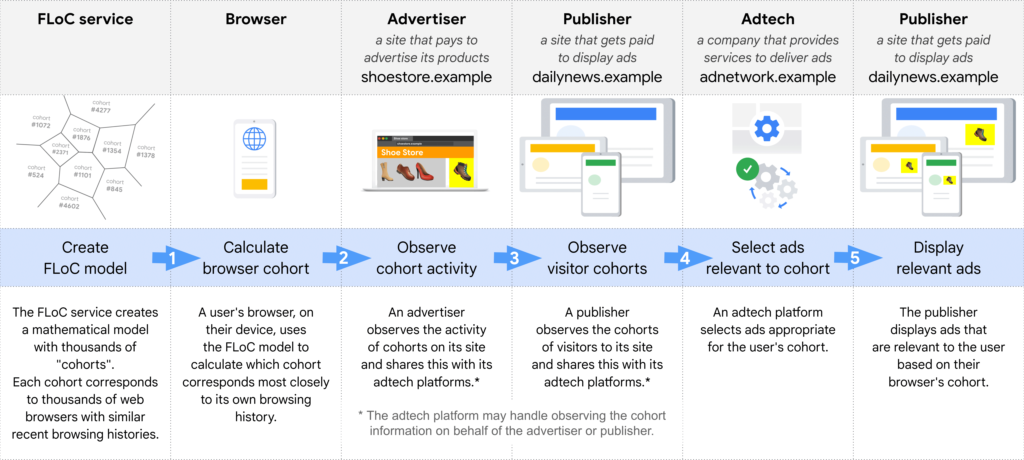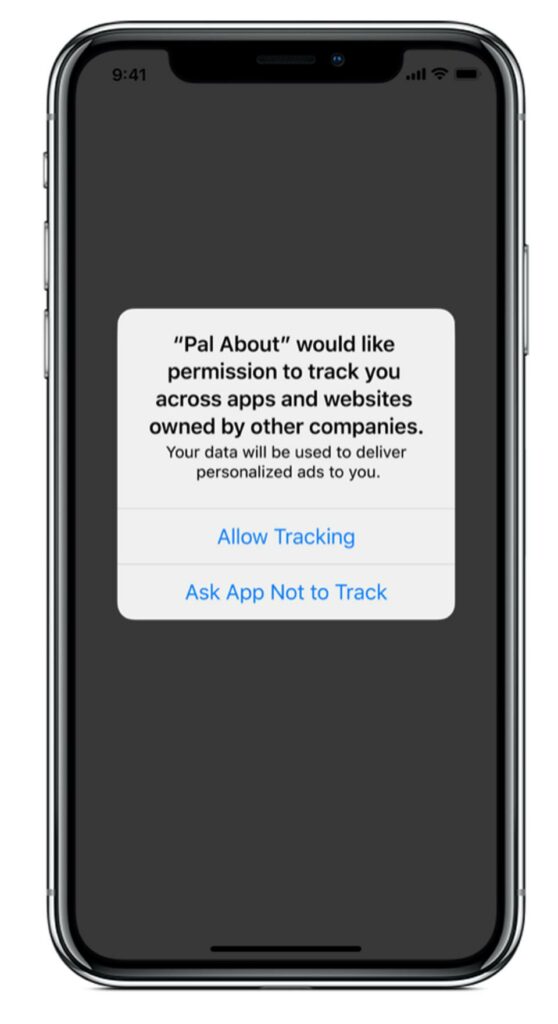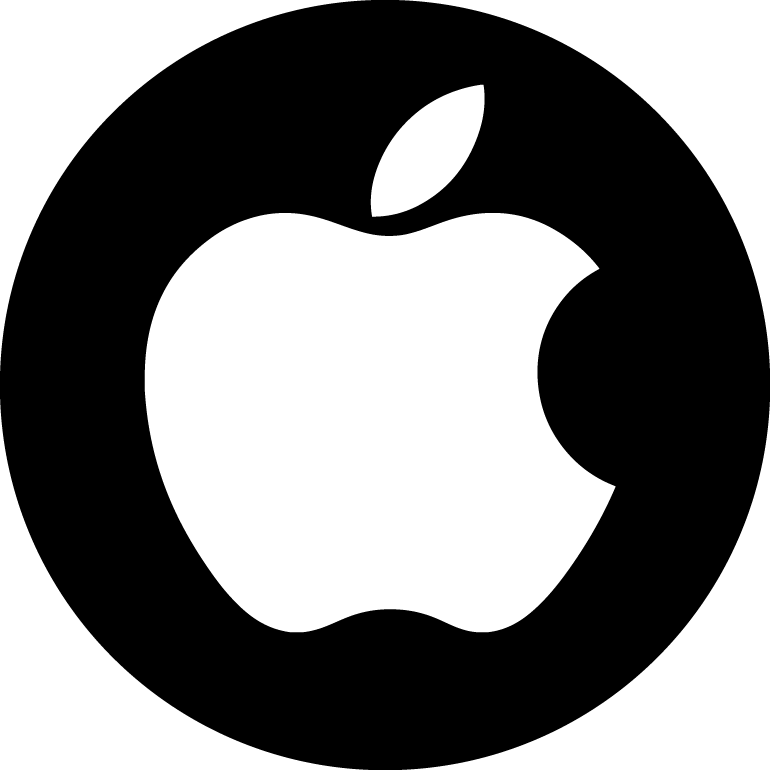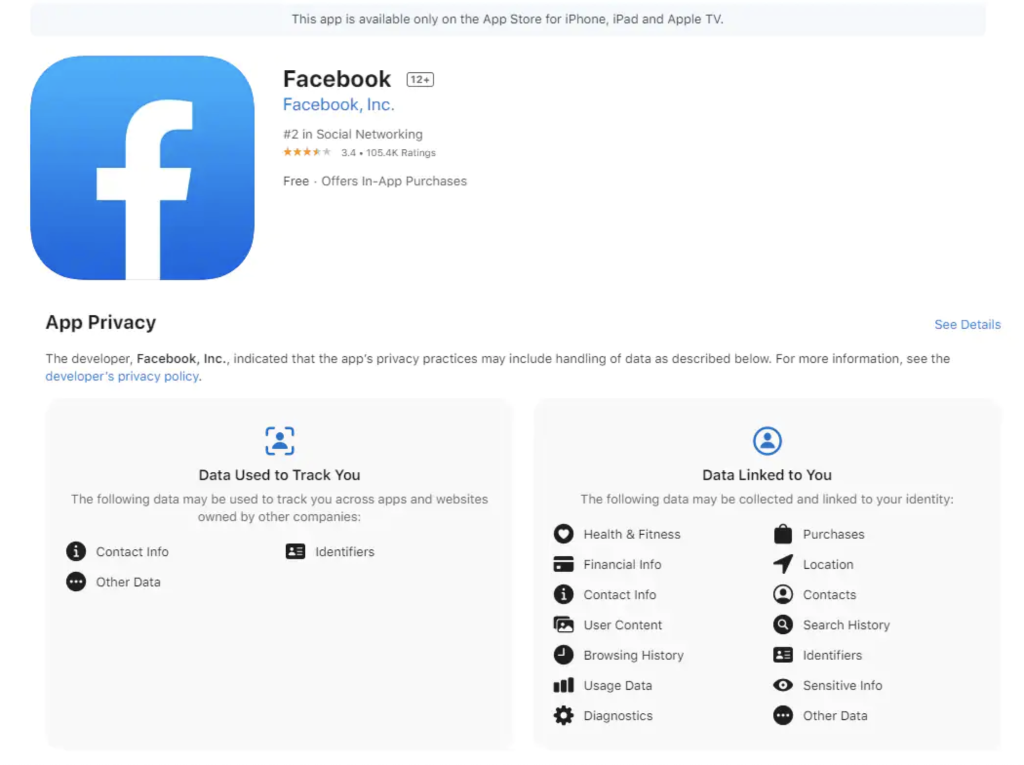Major Consumer Privacy Changes from Apple and Google are Reshaping the Marketing & Measurement Landscapes
04/29/2021

Major technology changes from Apple and Google are reshaping the marketing and measurement landscapes and are forcing brands to re-think their approaches and take actions to future-proof themselves against significant consumer identity data loss. This period of “data deprecation” will impact every brand- and in fact- every player in the advertising ecosystem. Both technology giants are making these changes in the name of consumer privacy, but they are taking widely divergent paths and deploying different methods, and the marketing industry’s players are reacting differently too.
Below, OptiMine explains the major changes being made, how they will impact marketing measurement, and we offer guidance on how brands can future-proof their own marketing measurement approaches to ensure continued success. We’ve also included an FAQ outlining the most common questions we hear in the market along with helpful answers and guidance. Let’s dive in!
What the FLoC is Going on Google?

What is Google FLoC?
In 2021, Google Chrome will stop supporting 3rd party cookies. Google has created the “Privacy Sandbox” initiative to develop an alternative approach to targeted advertising that does not use cookies for individual cross-site tracking, and does not deliver individually targeted ads- all while claiming to still deliver relevant, interest-based advertising.
According to Google, “Federated Learning of Cohorts” (FLoC) proposes a new way for businesses to reach people with relevant content and ads by clustering large groups of people with similar interests.” This approach effectively places individuals “in a crowd” and uses processing in the browser to track a person’s web history and place them into groups based on their behaviors, sites visited, inferred interests and other information. Then, advertisers and publishers can target ads to cohorts based on the cohorts’ attributes.
With the advertising industry grappling with the death of the cookie, new tracking schemes have sprouted up to replace the cookie but Google has made it clear that it does not intend to support industry coalition-driven efforts such as Unified ID and other proposed solutions and workarounds. It wasn’t clear until recently whether Google would embrace other industry initiatives or go it alone with its own solution: FLoC. But now that Google has indicated that FLoC will be its one and only approach to cookie replacement, what does that mean for marketers?

How Does Google FLoC work?
A lot of attention has been spent on how FLoC works to serve targeted advertising and the graphic below shows the flow of how a cohort gets built and is then used to deliver ad targeting:

But, much less attention has been spent considering the measurement methods to determine the ad’s performance nor the implications of the elimination of individual-level marketing attribution.
What Happens to Marketing Attribution?
For years, many marketers have assumed that “marketing attribution” requires that a brand track every ad a consumer sees across all of their devices in order to determine the incremental contribution of those ads. Under this definition of marketing attribution, Google’s Privacy Sandbox has several proposals for APIs to track conversions as outlined below. The proposal’s current default is to base the measurement on last-click, but also provides proposals for non-click based measurement.
View-Through Attribution:
The current Privacy Sandbox proposal for view-through conversions would use the event-level capability of the proposed Chrome API to track conversions that are attributed to ad impressions from other sites across the web. With this approach, Chrome would register ad impressions and match any conversions that happen on the advertiser’s site with the initial view. Also, the proposal would have the Chrome API limit the amount of data shared back about each conversion (i.e. no PII) and would also add “noise” to the data to prevent individual user tracking.
For currently proposed technical details, see: https://github.com/WICG/conversion-measurement-api/blob/main/event_attribution_reporting.md
Cross-Device Attribution:
The Privacy Sandbox proposes that cross-device conversions be tracked by using the event-level capability to report on conversions that happen on the advertiser’s site, which will then be attributed back to ad clicks and impressions from prior devices. Importantly: in order to accomplish this, the data would need to come from prospects that would have to be logged into their browsers across all devices involved in the journey.
For currently proposed technical details, see: https://github.com/WICG/conversion-measurement-api/blob/main/cross_device.md
OptiMine’s take on Google FLoC’s Conversion Measurement:
Based on current proposals, conversion measurement with Google FLoC won’t be any better than attribution with Google currently and that speaks to the fundamental issue: using Google’s own conversion measurement tools will always put Google advertising performance in the best possible light. Setting aside the “fox in the henhouse” philosophical problem for a moment, if Google only represents 30% of a brand’s working media spend, and the brand has no way of determining how much lift the other 70% of the budget is giving Google ads, a brand will most certainly get the wrong answer on Google performance by overstating its value. It is why last-click measurement always heavily favors lower funnel advertising such as paid search (i.e. Google).
And it is likely that “marketing attribution” based on tracking will get worse moving forward. The fact that nearly all other browsers aside from Chrome will not be supporting FLoC, and that Apple has now put severe limits on cross-device and and cross-site tracking, the tracking picture will be very hazy and incomplete:
- Multi-touch attribution identity match rates, which are already terrible, will get far worse
- There will be far less identity data to provide marketers with qualitative measures for creative targeting and personalization
- The proposed conversion measurement approach still does not cover non-digital conversions, and this will become far more difficult because identity-matching will be nearly impossible: no identity-level information will be captured for ad impressions
- A Google Chrome-only attribution solution will be a self-reinforcing and recursively-affirming measurement approach for Google ads
Because of these compounding issues, OptiMine continues to recommend that brands use objective, 3rd party measurement approaches that measure the entire marketing budget across all digital and traditional marketing channels covering all online and offline conversions.
Who’s on Board with FLoC?
As it turns out, not many. Several major browsers and tech players will NOT be supporting FLoC. Major browsers such as Safari, Microsoft Edge, Firefox, Brave, Opera and Vivaldi have all declined to support FLoC. While Google Chrome enjoys the largest market share (https://gs.statcounter.com/browser-market-share/all/united-states-of-america) at about 47% in the U.S., the fact that most of the remaining browser market has said no to FLoC indicates rough sailing ahead, and in particular, major gaps and holes in attribution. Additionally, groups such as the W3C Privacy Interest Group, the Electronic Freedom Frontier, and the privacy-centric search engine Duck Duck Go have also declined support of FLoC.
Have other questions about Google FLoC? Read OptiMine’s FAQ below.

Google FLoC FAQ:
1. How will retargeting work with FLoC if at all? And what are TURTLEDOVE and FLEDGE?
Turtledove is the Privacy Sandbox proposal that would create a cookie-less retargeting capability in Chrome. Turtledove stands for “Two Uncorrelated Requests, Then Locally-Executed Decision On Victory”. The proposal also lays out how retargeting will work through the use of a new web browser API and auction.
FLEDGE, or “First Locally-Executed Decision over Groups Experiment” is a more recent proposal following Google’s Turtledove proposal that would make ad auction decisions in the browser itself, rather than at the ad server level. Fledge is based on industry feedback about using a ‘trusted third-party’ – as opposed to relying solely on Google to manage the ad serving and the ad auction.
It is important to note that the “trusted third party” has not been defined yet, and that Turtledove and Fledge are only proposals at the moment. Testing of Fledge has been pushed back to late 2021 while Google works through various proposals from the ad tech community.
Note: for an excellent technical overview of how TURTLEDOVE would work, read here: https://adtechexplained.com/turtledove-explained/
2. What’s with all of the “bird” naming?
Birds of a feather stay together, or so the saying goes. Presumably the “FLoC” is meant to imply that the cohorts are filled with like-minded consumers. And the the bird-themed acronyms are now running amok: TURTLEDOVE, SPARROW, PARROT, DOVEKEY and so on…
3. What about FLoC in the EU?
Google recently acknowledged that FLoC may not comply with GDPR regulations and as a result, testing of FLoC in the EU has been placed on hold indefinitely. It isn’t clear at this time whether Google will develop a separate approach for the EU, change FLoC methods to comply with the GDPR directive, or pursue some other strategy for ad targeting in the EU altogether.
4. How will FLoC work with privacy regulations such as CCPA/ CPRA, etc.?
It is unclear whether the gathering of personal browsing history will violate the “Do Not Track” provisions of CCPA and CPRA. Also unclear is how FLoC will work when a consumer has opted out of tracking for certain companies and sites. Will Google FLoC have the intelligence to parse this? And, does the gathering of browsing history constitute “tracking” under the CCPA?
Also, at this time, there are over a dozen US states that have active consumer data privacy regulations in their pipelines modeled after GDPR and the CCPA. The final versions of these new regulations will reveal new provisions, privacy rights, controls, and restrictions that may be in conflict with FLoC’s design. But it is too early to determine such conflicts until these new regulations make it into final law.
5. What are some of the major industry initiatives that Google won’t be joining?
With Google FLoC moving forward, Google also shut down speculation that it may yet support cookie alternatives such as Unified ID 2.0 – or “UID 2.0”.
6. How can I check to see if I am unwittingly part of Google’s FLoC testing?
Google is actively running tests of FLoC in the market and you may be a “test subject” yourself. The Electronic Frontier Foundation has a useful site to see if you are “FLoCed”: https://amifloced.org/
Next up, OptiMine explores the Apple privacy changes recently made in the market along with their implications for marketers and marketing measurement.
Making Sense of Apple’s ATT & IDFA Privacy Changes

Now live, Apple’s own privacy updates combined with Google’s own FLoC initiative, promise to shake up the marketing landscape, and completely disrupt tracking-based marketing measurement.
With the release of iOS 14.5, Apple has announced significant new privacy changes, “With the upcoming public release of iOS 14.5, iPadOS 14.5, and tvOS 14.5, all apps must use the AppTrackingTransparency framework to request the user’s permission to track them or to access their device’s advertising identifier. Unless you receive permission from the user to enable tracking, the device’s advertising identifier value will be all zeros and you may not track them.”
The AppTrackingTransparency (“ATT”) changes- and the related updates to the ID for Advertisers (“IDFA”) tracking protocol, Apple has placed significant new privacy controls in the hands of its users, and is creating enormous marketing and measurement waves in the process.
Netting it Out
The Apple ATT and IDFA changes in iOS 14.5 are as follows:
1. All apps must request the user’s permission to track them (and in doing so, use the IDFA). Apple users will see an opt-in prompt like this:

By choosing “Allow”, the app will then be able to continue to use the IDFA to track the consumer across apps. By choosing “Ask App not to Track” which most consumers are predicted to do, the app will no longer be able to track the user, nor share information across apps using the IDFA.
2. In-App Advertising and App Attribution will be negatively impacted. With a majority of consumers predicted to opt out of tracking, significant new gaps in mobile advertising and attribution are widely expected. With more identity gaps, it will be increasingly difficult to reliably measure advertising performance using tracking-based attribution.
3. Other major app-based advertising networks (Facebook, etc.) will be negatively impacted due to a loss of cross-site tracking.
4. Other major app-based advertising networks’ (Facebook, etc.) own measurement tools will be negatively impacted due to tracking loss, tracking gaps, and a loss of cross-site tracking.
5. Finally, multi-touch attribution will continue its death march with further data loss driven by Apple ATT opt-outs, as well as Apple’s own tracking prevention efforts over the last few years via its Intelligent Tracking Prevention, or “ITP” protocols.
Notably, Apple’s ATT and IDFA changes are not just about the loss of tracking app installs. Yes, app developers and in-app advertising will take a significant hit with the rollout of Apple’s changes, but looking through a wider lens, brands will see that the broader tracking-based picture is getting dimmer and less complete.
The combination of Google’s move away from individual tracking and ad targeting plus Apple’s tracking changes disrupt the entire advertising ecosystem, and marketing attribution in the process.
Have other questions about Apple ATT & IDFA? Read OptiMine’s FAQ below.

Apple ATT & IDFA FAQ:
1. When do Apple’s ATT & IDFA changes go live?
Once a user updates their Apple device to iOS 14.5 (including iPhone, iPad and Apple TV), they will begin to see the AppTracking Transparency prompts asking for their decision on whether to opt in or opt out of tracking. iOS 14.5 went live on April 26, 2021 and is expected to roll out in the ensuing weeks after general availability.
2. What are Apple’s new privacy “nutrition labels”?
In late 2020, Apple launched a new requirement that App developers include “privacy labels” for their apps in the Apple App Store. The labels list the types of data being collected from users in an easily scannable format. See the privacy label for Facebook as an example below:

3. If a user opts out of IDFA is it automatically across all of their Apple devices?
Yes, with the assumption that the user has a common Apple ID across these devices.
4. Does the IDFA change impact all of the apps already downloaded to an Apple device or just new apps that are installed after the change?
Apple’s ATT changes impact ALL apps, including those already installed on a user’s Apple device plus any new apps installed.
5. Why is Facebook making such a big stink about this?
Facebook has been very public in their opposition to Apple’s changes. While Facebook claims that Apple will damage small business owners, another explanation for Facebook’s consternation is that their Audience Network advertising will be diminished as a result of Apple’s changes. If a user opts out of Facebook tracking, Facebook can no longer serve targeted ads to other properties in its Audience Network for that user, and thereby faces reduced advertising revenues. For more impacts on Facebook and how Apple’s changes will impact your own Facebook measurement, watch OptiMine’s recent on-demand webinar in partnership with the Advertising Research Foundation for a deeper explanation of measurement impacts.
6. How will this impact lift measurement and A/B testing?
Both Apple and Google’s changes will create major A/B testing difficulties. Why? Because the test and control groups necessary for a clean test will become extremely difficult to keep airtight. A/B testing requires that you split prospective consumers into 2 or more controlled groups, where one is exposed to the ad (the “test” group) and one isn’t shown the ad (the “control” group), in order to determine what, if any, lift in conversions is driven by being exposed to the ad. If you can no longer ensure the integrity of the control and test groups because of tracking holes and gaps, and as a result test reads are no longer reliable. Brands will be forced to move to broader geo-based in-market testing, which is still effective, but takes far longer to execute and contains more risks (i.e. advertising must be turned off for a larger segment of the market). Even Facebook recently had to stop their own A/B testing capability due to Apple’s changes.
7. What about Apple ATT workarounds being discussed in the industry right now?
Various players in the ad tech industry have been conducting a method called “fingerprinting” to use different attributes of the device and session characteristics to probabilistically identify a user and their device. Apple rules strictly prohibit the use of fingerprinting (Apple’s own ITP protocol has been fighting a cat and mouse game on this front for a few years), and Apple has stated publicly that it will continue to clamp down on the use of fingerprinting, including kicking developers off of the Apple platform entirely. It is safe to say that Apple is highly committed to their privacy moves and that the ATT and IDFA changes will continue to evolve to stay ahead of industry workarounds.

How to Future-Proof Your Measurement
With Apple’s recent privacy changes and Google’s looming FLoC cookie-killing initiative, brands must take steps now to future-proof their marketing measurement. Marketers relying on tracking-based attribution are already facing accuracy issues and this picture will continue to degrade with every new loss of data.
Thankfully there are well proven measurement methods that don’t rely on PII to measure the incremental contributions of marketing campaigns. OptiMine’s own solution is 100% future-proof and provides brands an uninterrupted source of performance measurement intelligence. But there are other moves a brand needs to consider when making changes in their measurement approach. OptiMine has pulled together best practices guidance from our most successful brands across topics such as:
- How to evaluate your tracking exposure to identify areas that need to change
- How to organize teams and decisions processes to get the most from your marketing measurement
- The best methods to drive accountability in a company’s use of analytics
Download the “How to Future-Proof Your Marketing Measurement” eBook here










